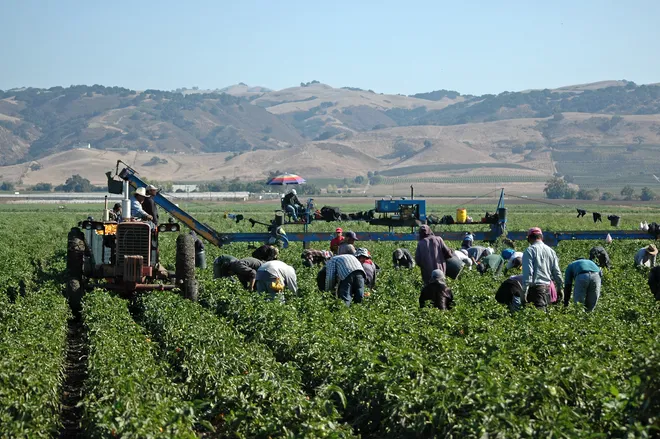Latest reports suggest that the UK is currently facing food shortages and price rises as extreme weather linked to climate breakdown causes low yields on farms locally and abroad.
Record rainfall has meant farmers in many parts of the UK have been unable to plant crops such as potatoes, wheat and vegetables during the key spring season, according to reports. Crops that have been planted are of poor quality, with some rotting in the ground.
The persistent wet weather has also meant a high mortality rate for lambs on the UK’s hills, while some dairy cows have been unable to be turned out on to grass, meaning they will produce less milk.
Agricultural groups have also said that the UK will be more reliant on imports, but similarly wet conditions in European countries such as France and Germany, as well as drought in Morocco, could mean there is less food to import. Economists have warned this could cause food inflation to rise, meaning higher prices at supermarkets.
Tom Bradshaw, who is the president of the National Farmers’ Union, said markets had “collapsed” as farmers fail to produce food in the punishing conditions.
“We’re going to be importing a lot more product this year,” he was quoted as saying.
One major retailer said the wholesale price of potatoes was up 60% year on year as much of the crop had rotted in the ground.
Read also: Heaviest rainfall in 75 years hits Desert city of Dubai
Supplies of potatoes have also been affected by a 10% reduction in the area planted last year as farmers switched to less weather dependent and more financially secure crops. Industry insiders said they expected a further 5% fall in planting this year.
Jack Ward, who is the chief executive of the British Growers Association, said: “There is a concern that we won’t ever have the volumes [of potatoes] we had in the past in the future.”
He was quoted as saying that wholesale prices were too low for farmers to generate enough income to cope with high fuel, labour and machinery costs as well as the effects of climate breakdown. “We are not in a good position and it is 100% not sustainable.”
Story was adapted from the Guardian.
